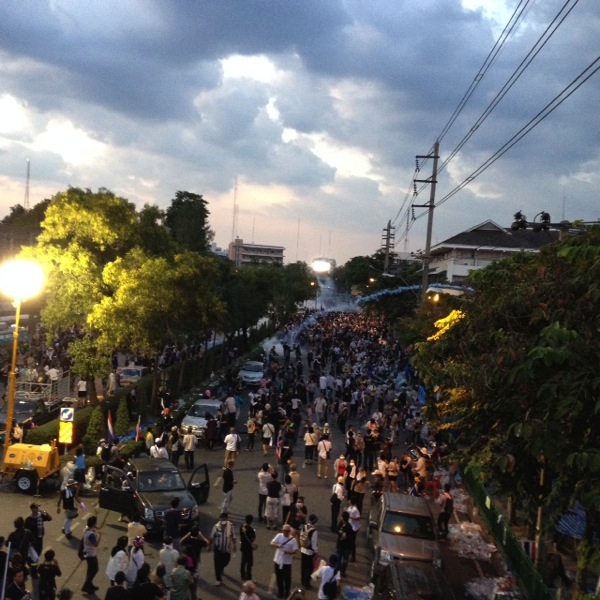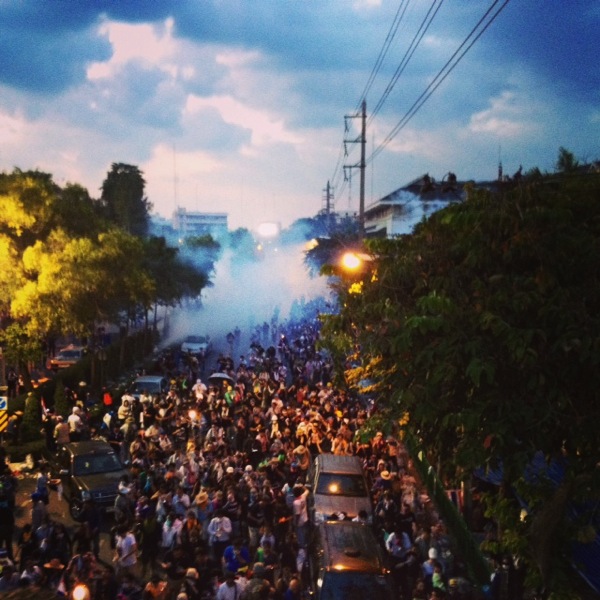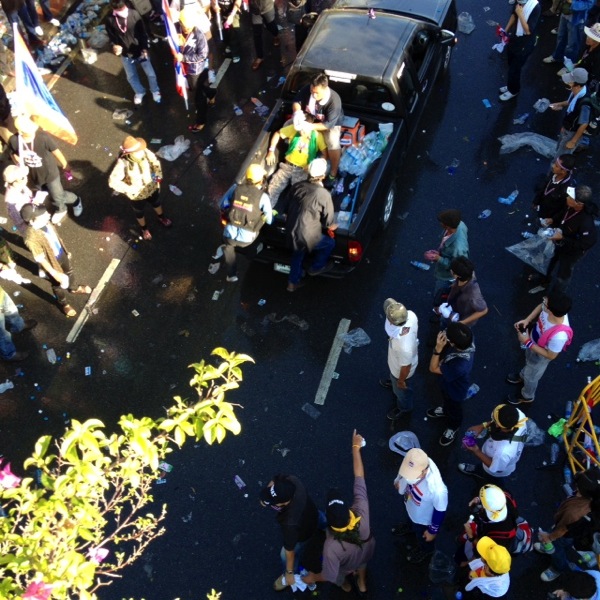Those among Thailand’s anti-government demonstrators who care what foreigners think about their efforts to topple Prime Minister Yingluck Shinawatra may want to avert their eyes from editorials that ran in The Wall Street Journal and The New York Times on Monday.
In a piece with the headline “Thailand’s Disloyal Opposition,” The WSJ said:
Faced with almost certain defeat at the polls, the Democrats have decided to pursue power by making the country ungovernable. Such behavior is the definition of a disloyal opposition, and the protesters use the word “insurrection” to define their movement. While they pay lip service to reforming the democratic system, at other times they demand that the monarchy install a new leader and that democracy give way to rule by the elite.
And:
So far the pro-Thaksin rural population has remained relatively quiet, but they are seething with anger. They are capable of mobilizing far bigger protests to defend their elected representatives should that become necessary.
And finally:
The Democrats’ claims to represent the will of the people, but their leaders are bent on returning to power with or without the support of a majority. With such an opposition, Thailand’s democracy will continue to suffer.
Meanwhile, The NYT noted:
Mr. Suthep and his followers — who are mostly from the capital, Bangkok, and represent the middle class and economic elite of the country — are playing a cynical and dangerous game. They have concluded that there is no way the Democrat Party, which has lost every election since 1992, can win against Ms. Yingluck’s Pheu Thai Party, whose populist policies like free health care and subsidies for rice farmers has earned it the loyalty of many voters, especially those in northern and northeastern Thailand. If they manage to depose the Ms. Yingluck’s government, the supporters of Pheu Thai will likely take to the streets as they did in 2010.
The theme of both pieces: The protesters are subverting democracy, and their efforts will only lead to more turmoil in the long run.


